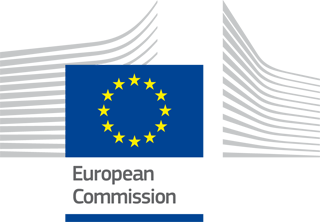

News
Second Workshop in Kenya to prepare the National Action Plan to mitigate CBRN risks
EU CBRN Risk Mitigation CoE Initiative
Nairobi, 30 September 2014.


Funded by the European Union
The second workshop on the Chemical, Biological, Radiological and Nuclear (CBRN) National Action Plan (NAP) was held on 29-30 September 2014 in Kenya. The two-day workshop is part of the European Union (EU) Chemical, Biological, Radiological and Nuclear (CBRN) Risk Mitigation Centres of Excellence (CoE) Initiative. The EU CBRN CoE Risk Mitigation Initiative creates a network of regional initiatives and promotes and supports the development and implementation of a national CBRN policy.
The overall purpose of the National CBRN Action Plan is to articulate a national vision for CBRN risk mitigation and to identify priorities for building capacity. It also facilitates the identification and implementation of projects and ensures that capacity building is part of a coordinated and sustainable approach. The National Action Plan is designed to make sure that separate efforts are incorporated into one coherent approach that strengthens national CBRN capacities for prevention, detection, preparedness and response to CBRN threats. Its development is based on a voluntary and bottom-up approach entirely led by countries who decide which information to include in the National CBRN Action Plan and how it will be used.
National agencies present at the workshop were: Government Chemist Department, Kenya Association of Manufacturers, Kenya Citizens and Foreign Nationals Management Service, Kenya Medical Research Institute (KEMRI), Kenya Red Cross, Kenya Revenue Authority, Ministry of Agriculture, Livestock and Fisheries, Ministry of Education, Science and Technology, Ministry of Foreign Affairs and International Trade, National Biosafety Authority (NBA), National Environment Management Authority (NEMA), Office of the Attorney General, Pharmacy and Poisons Board, Radiation Protection Board, St. John Ambulance, University of Nairobi. Aside from UNICRI experts who were facilitating the work of the National Team, the workshop was also attended by the representatives from the Delegation of the European Union to Kenya, EC Joint Research Centre, Organisation for the Prohibition of Chemical Weapons and World Health Organization.
The main objective of the second workshop was for the National CBRN team and international experts to present and review the draft National CBRN Action Plan, resulting from a series of previous meetings, with a particular focus on identification of priorities.
The EU CBRN CoE initiative is funded by the European Commission and implemented in cooperation with the United Nations Interregional Crime and Justice Research Institute (UNICRI). The European External Action Service is also involved in the follow-up of the initiative. The initiative is developed with the technical support of relevant international and regional organisations, the EU Member States and other stakeholders, through coherent and effective cooperation at the national, regional and international level. The initiative involves 47 countries in 8 regions of the world.
For more information:
CBRN Centres of Excellence website:
http://www.cbrn-coe.eu/
European Commission, Instrument contributing to Stability and Peace website:
http://ec.europa.eu/dgs/fpi/what-we-do/instrument_contributing_to_stability_and_peace_en.htm


Nairobi, 30 September 2014.


Funded by the European Union
The second workshop on the Chemical, Biological, Radiological and Nuclear (CBRN) National Action Plan (NAP) was held on 29-30 September 2014 in Kenya. The two-day workshop is part of the European Union (EU) Chemical, Biological, Radiological and Nuclear (CBRN) Risk Mitigation Centres of Excellence (CoE) Initiative. The EU CBRN CoE Risk Mitigation Initiative creates a network of regional initiatives and promotes and supports the development and implementation of a national CBRN policy.
The overall purpose of the National CBRN Action Plan is to articulate a national vision for CBRN risk mitigation and to identify priorities for building capacity. It also facilitates the identification and implementation of projects and ensures that capacity building is part of a coordinated and sustainable approach. The National Action Plan is designed to make sure that separate efforts are incorporated into one coherent approach that strengthens national CBRN capacities for prevention, detection, preparedness and response to CBRN threats. Its development is based on a voluntary and bottom-up approach entirely led by countries who decide which information to include in the National CBRN Action Plan and how it will be used.
National agencies present at the workshop were: Government Chemist Department, Kenya Association of Manufacturers, Kenya Citizens and Foreign Nationals Management Service, Kenya Medical Research Institute (KEMRI), Kenya Red Cross, Kenya Revenue Authority, Ministry of Agriculture, Livestock and Fisheries, Ministry of Education, Science and Technology, Ministry of Foreign Affairs and International Trade, National Biosafety Authority (NBA), National Environment Management Authority (NEMA), Office of the Attorney General, Pharmacy and Poisons Board, Radiation Protection Board, St. John Ambulance, University of Nairobi. Aside from UNICRI experts who were facilitating the work of the National Team, the workshop was also attended by the representatives from the Delegation of the European Union to Kenya, EC Joint Research Centre, Organisation for the Prohibition of Chemical Weapons and World Health Organization.
The main objective of the second workshop was for the National CBRN team and international experts to present and review the draft National CBRN Action Plan, resulting from a series of previous meetings, with a particular focus on identification of priorities.
The EU CBRN CoE initiative is funded by the European Commission and implemented in cooperation with the United Nations Interregional Crime and Justice Research Institute (UNICRI). The European External Action Service is also involved in the follow-up of the initiative. The initiative is developed with the technical support of relevant international and regional organisations, the EU Member States and other stakeholders, through coherent and effective cooperation at the national, regional and international level. The initiative involves 47 countries in 8 regions of the world.
For more information:
CBRN Centres of Excellence website:
http://www.cbrn-coe.eu/
European Commission, Instrument contributing to Stability and Peace website:
http://ec.europa.eu/dgs/fpi/what-we-do/instrument_contributing_to_stability_and_peace_en.htm





